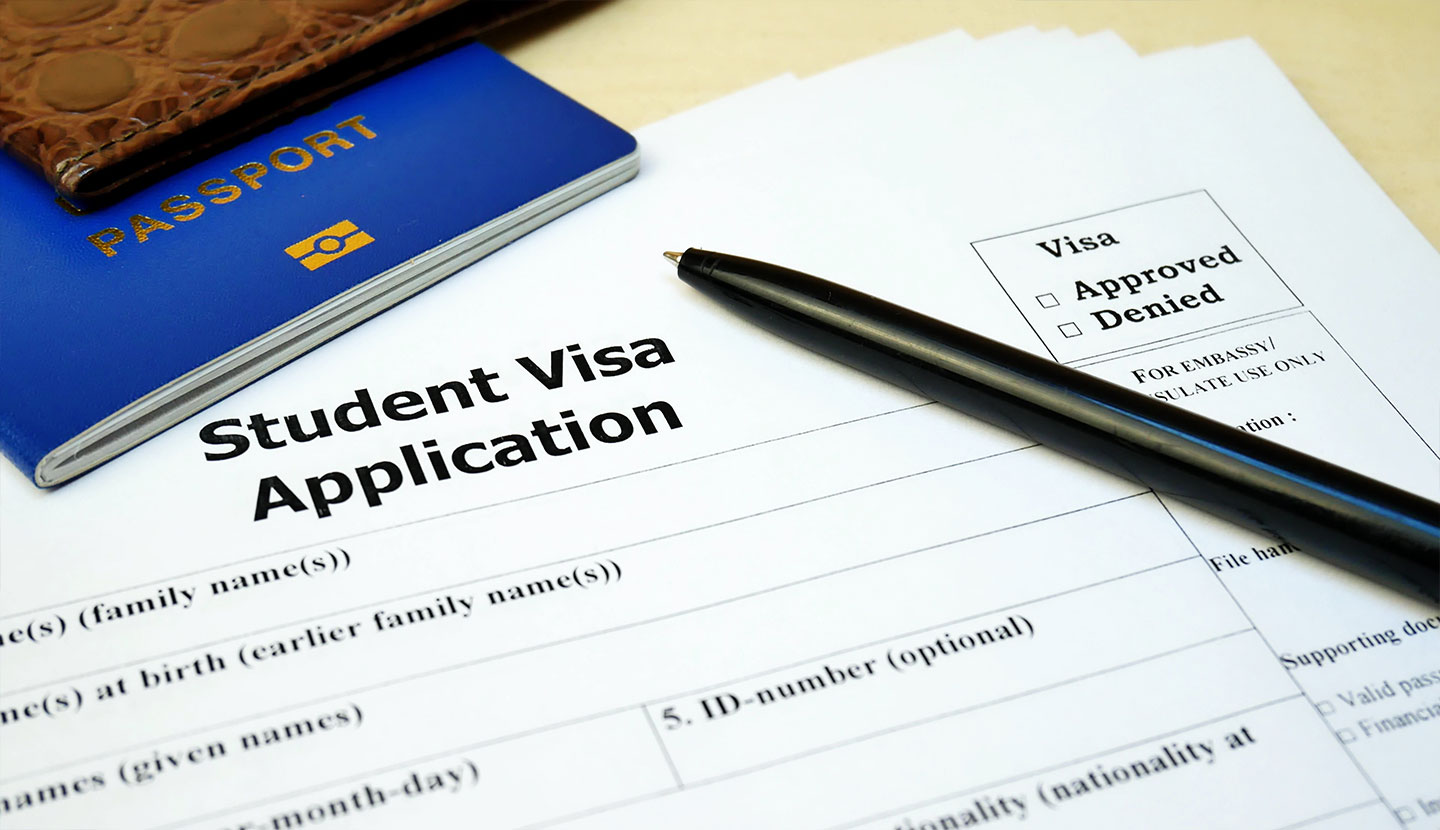
 Work Permit
Work Permit
Canada’s reputation for excellent educational institutions and thriving job opportunities makes it an attractive destination for international students. As an international student studying in Canada, you may be wondering about the possibility of transitioning from a study permit to a work permit after completing your studies.
Unlocking career opportunities in Canada is a common aspiration for international students. If you’re an international student in Canada, you might be keen to explore the possibility of transitioning from a study permit to a work permit upon completing your studies. This transition can open doors to exciting career prospects in the Great White North.

In this informative blog post, we’ll delve into the pathways and requirements for changing a study permit to a work permit in Canada. Whether you’re a recent graduate or a prospective international student, understanding these options will play a crucial role in planning your future in the Great White North.
Understanding the nuances of a study work permit in Canada and the process to convert your student permit to a work permit in Canada is essential for a seamless transition. To delve deeper into the pathways and requirements, consider this informative blog post. Whether you’re a recent graduate or a prospective international student, this knowledge is a valuable asset in planning your future in Canada.
For expert guidance and support with your immigration journey, turn to SayHomeCanada Immigration – Your Trusted Immigration Partners!
Read More: Canada student spouse visa rejected
The Post-Graduation Work Permit (PGWP) program is a compelling opportunity for international students who have successfully completed a full-time program at a designated Canadian learning institution. This program provides eligible graduates with the chance to obtain a study work permit in Canada.
That allows them to work for a period determined by the length of their study program, extending up to a maximum of three years. To qualify for the PGWP, students must have completed a program lasting a minimum of eight months and have earned a certificate, diploma, or degree from a recognized Canadian institution.
The PGWP allows eligible graduates to work in Canada for a duration that depends on the length of their study program, up to a maximum of three years. To be eligible, you must have completed a program that is at least eight months in duration and have received a certificate, diploma, or degree from a recognized Canadian institution.
The PGWP holds strong appeal for international graduates, granting them the advantage of accumulating valuable Canadian work experience post-studies. This experience enhances their competitiveness in the job market and opens potential pathways to explore student permit to work permit Canada conversions and secure their future in the country.

Read More: Canada visa refusal
In case you don’t meet the eligibility criteria for the PGWP program, there are alternative pathways to explore, such as the Temporary Foreign Worker Program (TFWP). This program empowers Canadian employers to hire foreign workers to address specific labor shortages. To pursue a work permit for students in Canada via the TFWP, you generally require a positive Labour Market Impact Assessment (LMIA).
The LMIA process entails the Canadian employer showcasing that employing a foreign worker will yield a positive or neutral impact on the Canadian labor market. Upon receiving a positive LMIA, you can include it as part of your work permit application.
The TFWP primarily caters to individuals possessing specialized skills or qualifications that are in high demand in Canada. For those contemplating a study permit to work permit transition, the TFWP offers a viable alternative route to consider.
Read More: How to get canadian citizenship
For international students who wish to stay in Canada permanently, Express Entry and Provincial Nominee Programs (PNPs) offer pathways to Canadian permanent residency.
Canada places a high value on individuals with Canadian education and work experience, making international students highly desirable candidates for immigration.Transitioning from a study permit to work permit opens up promising opportunities for international students. You might be wondering, “Can I change my study permit to work permit in Canada?”
The answer is yes. You can convert your study permit to a work permit in Canada through various pathways, ensuring a smooth shift from a student permit to work permit Canada. Express Entry and Provincial Nominee Programs (PNPs) are among the key avenues to explore.
Express Entry operates as a points-based system, evaluating candidates based on factors like age, education, work experience, and language proficiency. Meeting the criteria and receiving an invitation to apply paves the way for your application for permanent residency through Express Entry.

PNPs, on the other hand, are immigration programs run by individual Canadian provinces and territories. These programs target specific candidates with skills and experience in high-demand occupations in the respective regions. International graduates who have studied and worked in a specific province may be eligible to apply for permanent residency through the PNP.
Read More: Canada new immigration rules
Navigating the Canadian immigration landscape, particularly the process of changing a study permit to a work permit in Canada, can be intricate. Many international students ask, “Can I change my study permit to work permit in Canada?”
The answer is affirmative, and exploring how to convert a study permit to a work permit in Canada is crucial. It opens doors to transition from a student permit to a work permit in Canada. For a seamless journey, professional immigration guidance is invaluable. Reach out to a reputable immigration consultancy such as SayHomeCanada Immigration.
Their experienced team of experts will assist in assessing your eligibility, gathering necessary documents, and ensuring a successful application process for your work permit or permanent residency, facilitating your transition from a study permit to work permit.
Read More: Can i extend my pgwp
Exploring the process of changing a study permit to a work permit in Canada offers multiple pathways, including the renowned Post-Graduation Work Permit (PGWP) program. For those who don’t meet the PGWP criteria, options like the Temporary Foreign Worker Program (TFWP) beckon, providing promising opportunities. The ultimate goal may be permanent residency, achievable through Express Entry and PNPs.

Working concurrently while holding a study permit grants you invaluable work experience for students in Canada, enriching your skill set. Nonetheless, successfully navigating the intricate Canadian immigration system demands meticulous planning and expert guidance.
Ready to embark on your journey from study to work in Canada? 🌟 Join hands with Say Home Canada Immigration for a seamless immigration experience and a brighter future in the Great White North! Contact us today! 🍁🚀 Visit our social media handles; Facebook, Instagram or Twitter for latest updates!
Absolutely! As an international student with a valid study permit, you can work part-time during the academic year and full-time during scheduled breaks. This allows you to gain valuable work experience while studying and explore potential pathways to a work permit after graduation. Contact us for expert Guidance!
The PGWP program allows eligible international graduates to work in Canada for up to three years after completing their studies. To qualify, you must have graduated from a designated learning institution and completed a program that is at least eight months in duration.
Check if your program and institution are eligible on the official government website. Your path to gaining valuable Canadian work experience begins with the right information – discover more with SayHomeCanada today!
If you don’t meet the requirements for the PGWP program, don’t worry! You can still explore other pathways, such as the Temporary Foreign Worker Program (TFWP). This program allows Canadian employers to hire foreign workers to fill specific labor shortages.
To apply for a work permit through the TFWP, you may need a positive Labor Market Impact Assessment (LMIA) from your employer. For insights into TFWP and how it can be your pathway to Canadian work experience, give us a call!
Absolutely! Canada values international students and offers pathways to permanent residency through programs like Express Entry and Provincial Nominee Programs (PNPs). Express Entry is a points-based system that ranks candidates based on factors like age, education, work experience, and language proficiency.
PNPs, on the other hand, are immigration programs run by individual provinces that target candidates with skills and experience in high-demand occupations.
Navigating the Canadian immigration system can be complex, and each case is unique. Seeking professional immigration assistance ensures that you receive expert guidance tailored to your specific situation.
Reputable immigration consultancies, like SayHomeCanada Immigration, can help you understand your eligibility, compile the necessary documents, and maximize your chances of a successful study permit to work permit transition or other immigration pathways.
Thank you for the response .
Let's Connect